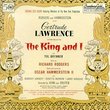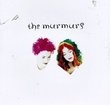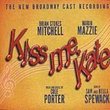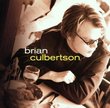| All Artists: Schubert, Harnoncourt Title: Symphonies 2 & 6 Members Wishing: 0 Total Copies: 0 Label: Elektra / Wea Release Date: 7/18/1995 Genre: Classical Style: Symphonies Number of Discs: 1 SwapaCD Credits: 1 UPC: 745099751029 |
Search - Schubert, Harnoncourt :: Symphonies 2 & 6
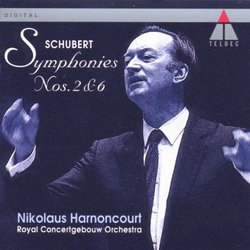 | Schubert, Harnoncourt Symphonies 2 & 6 Genre: Classical
|
Larger Image |
CD DetailsSimilarly Requested CDs
|
CD ReviewsMore characterful Schubert, sounding new again Santa Fe Listener | Santa Fe, NM USA | 03/11/2006 (5 out of 5 stars) "This CD, now out of print, was pulled from Harnoncourt's complete cycle. For anyone choosing to assemble the symphonies one disc at a time, this installment is as fresh and buoyant as the others. Sym. #2 is rarely played in the concert hall. Here it emerges as a work fully as meldoci and engaging as the more commonly encountered Sym. #6. In both cases the recorded sound is excellent and the Royal Concertgebouw plays with alertness and lovely sonority. My onlyy caveat is that the Scherzo of the Sixth contains some odd hurdy-gurdy effects in the trio. This must be the result of Harnoncourt returning to Schubert's original manuscript, which he claims contains many intentional markings that shouldn't have been edited out or changed. In the finale Harnoncourt takes a slow tempo for the second theme and parts of the development and gives the music sharper corners than we're used to. Perhpas his penchant for idiosyncracies has reared its head. Elsewhere, however, these are wonderful performances free of eccentricity." The real thing Ian Brown | Queensland, Australia | 12/18/2000 (5 out of 5 stars) "Forget the rest - Harnoncourt is now the unsurpassed king in this repertoire. He is the modern day Furtwangler. Everything Harnoncourt does he stamps with his special individuality - sample the final movement of No. 6. Harnoncourt's eccentric tempo sounds bizarre at first - after a while it seems just right and everyone else seems wrong. A treat as is the entire cycle." Debate Over Harnoncourt; None Over Schubert Erik North | San Gabriel, CA USA | 11/21/2008 (4 out of 5 stars) "I think it can fairly be said that Nikolaus Harnoncourt is one of those conductors whose style can be both interesting and infuriating in equal measure. Some of it has to do with his having been involved in the first wave of period-instrument performance practice (he had founded the Consentus Musicus of Vienna), and bringing that sort of experience to bear on his recordings of Mozart, Haydn, and Beethoven with modern orchestras. And such was the case when he essayed the symphonies of the natural successor to those three titans, Franz Schubert, and did so using the world-famous Concertgebouw Orchestra of Amsterdam. This recording of Schubert's 2nd and 6th symphonies is part of Harnoncourt's complete traversal of the composer's symphonic output; and as with so many of his recordings, the eccentricites are quite evident.
The Second Symphony, a product of Schubert's late teens, sees the composer expanding his symphonic range from No. 1 into areas redolent of Beethoven at his most effusive; while No. 6, composed when Schubert was 20, is a vigorous work that clearly shows how much he had studied both Beethoven and Rossini. In both works, Harnoncourt's interpretations have a quite dramatic twist in terms of tempos, particularly in the outer movements. And as with the period-instrument performances of it (and Wolfgang Sawallisch's 1967 recording with the Dresden State Orchestra), Harnoncourt takes the Minuetto third movement of the Second Symphony at an inexplicably breakneck pace, almost as if he and the Concertgebouw are rushing off to a fire sale. Still, that symphony is not exactly one of the most performed on CD or in concert halls; and the fact that it has since gained some traction in terms of the number of performances can at least be partially credited to this recording (As a sidenote, both the imposing opening section and the Minuetto can be heard, in this very recording, in Oliver Stone's 1995 film NIXON). And the Sixth Symphony is quite a challenge for Harnoncourt too, given his eccentric tempos (as an alternate recording, one might try Claudio Abbado's 1987 DG recording with the Chamber Orchestra of Europe, which is straighter). But this work too isn't exactly overplayed; and if this particular recording, eccentricities and all, has contributed even slightly to Schubert's symphonies receiving more concert performances, especially here in America, so much the better. The debate over Nikolaus Harnoncourt's conducting will probably go on for many more years. But one must congratulate him just the same for giving Schubert's symphonic output a boost in the public's mind, because Schubert was and still is a greatly appreciated composer, and his symphonies are among the most underrated of any major composer in history." |

 Track Listings (8) - Disc #1
Track Listings (8) - Disc #1


